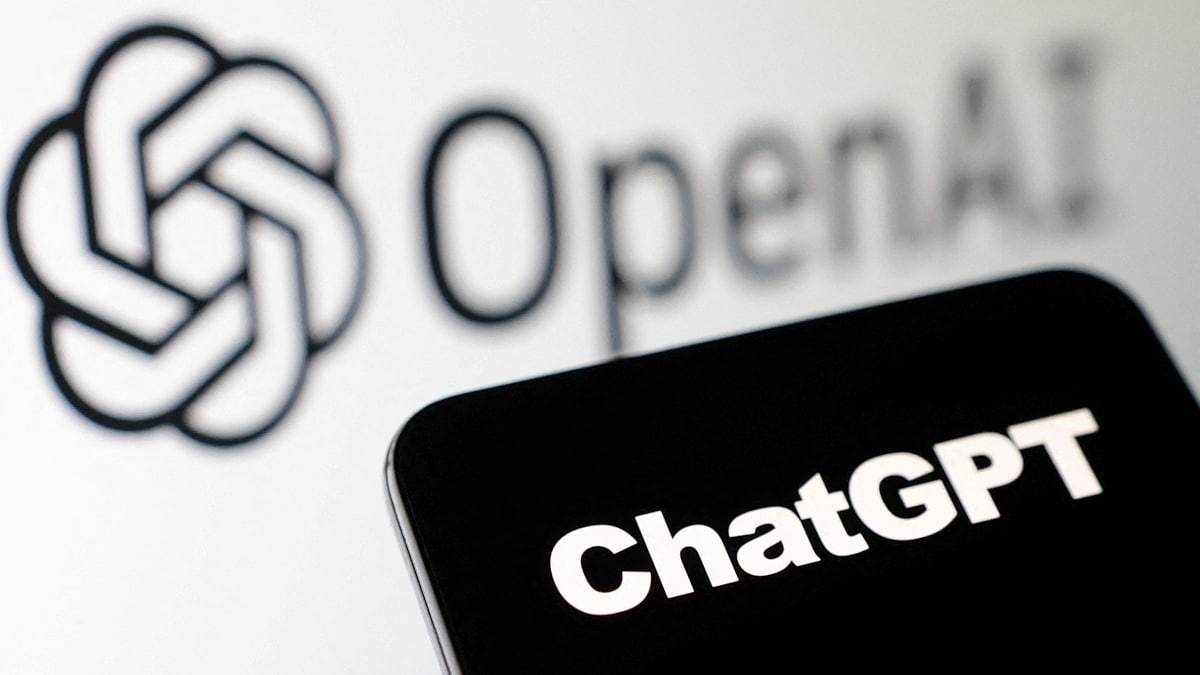FTC Probe Into OpenAI: Examining ChatGPT's Data Practices And AI Regulation

Table of Contents
The FTC's Concerns Regarding ChatGPT's Data Practices
The FTC's investigation into OpenAI likely encompasses several key areas concerning ChatGPT's data practices. The agency is examining the entire lifecycle of user data, from collection to storage and use, to ensure compliance with existing laws and to protect consumer interests.
Data Collection and Consent
A central concern is whether OpenAI obtained truly informed consent from users regarding their data. The FTC is likely scrutinizing the transparency of OpenAI's privacy policy, specifically how it explains data usage in training ChatGPT.
- Transparency of Privacy Policy: The clarity and comprehensibility of OpenAI's privacy policy regarding data usage are under the microscope. Does the policy clearly articulate how user data is used for training the model? Are the potential risks to users adequately explained?
- User Understanding: The FTC is likely investigating whether users genuinely understand how their interactions with ChatGPT contribute to the model's development and the potential ramifications of that contribution. Were users adequately informed about the extent of data collection?
- Compliance with Existing Laws: The investigation will assess whether OpenAI's data collection practices comply with existing regulations like the Children's Online Privacy Protection Act (COPPA), which protects children's data, and the General Data Protection Regulation (GDPR) for European Union citizens. Failure to comply with these laws could result in significant penalties.
Potential for Bias and Discrimination
Another crucial aspect of the FTC's investigation involves the potential for algorithmic bias within ChatGPT. The model's responses are shaped by the data it's trained on, and if that data reflects existing societal biases, the AI could perpetuate or even amplify those biases.
- Bias in Training Data: The FTC will analyze the dataset used to train ChatGPT, looking for evidence of inherent biases present in the source material. This includes scrutinizing the representativeness of the data and potential overrepresentation of certain demographics.
- Discriminatory Outputs: The investigation will evaluate ChatGPT's output for evidence of discriminatory or unfair outcomes. This could involve analyzing responses across different user demographics to identify patterns of bias.
- Impact on Vulnerable Populations: A key consideration is the potential disproportionate impact of bias on vulnerable populations, such as racial or ethnic minorities, individuals with disabilities, or those from lower socioeconomic backgrounds.
Data Security and Privacy Breaches
The FTC's investigation also includes a thorough review of OpenAI's data security measures and its response to any potential breaches or vulnerabilities. Protecting user data is paramount, and any shortcomings in this area could lead to severe consequences.
- Robustness of Security Protocols: The agency will assess the strength of OpenAI's security protocols designed to protect user data from unauthorized access, use, or disclosure. This includes evaluating encryption methods, access controls, and other security measures.
- Incident Response Plan: The FTC is likely evaluating OpenAI's preparedness for data breaches, including its incident response plan. A comprehensive plan is crucial for minimizing the impact of any security incident.
- Consequences of a Data Breach: The potential impact of a data breach on user privacy and trust is a key concern. A breach could expose sensitive user information and damage OpenAI's reputation, leading to legal and financial ramifications.
The Broader Implications for AI Regulation
The FTC OpenAI ChatGPT investigation has far-reaching implications beyond OpenAI itself. It underscores the urgent need for comprehensive regulatory frameworks to govern the development and deployment of powerful AI systems.
Need for Comprehensive AI Frameworks
The investigation highlights the significant challenges in regulating rapidly evolving AI technology. Existing legal frameworks may not be adequate to address the unique risks posed by advanced AI systems like ChatGPT.
- Challenges of Regulating AI: The rapid pace of AI development necessitates agile and adaptable regulatory approaches. Traditional regulatory models might prove insufficient for this dynamic field.
- Potential Regulatory Models: Various regulatory models are being considered, including sector-specific regulations focusing on particular AI applications or a more general AI safety act providing overarching governance.
- International Cooperation: Establishing global AI standards requires international cooperation to harmonize regulations and prevent regulatory arbitrage, where companies relocate to jurisdictions with less stringent rules.
Balancing Innovation and Consumer Protection
A crucial aspect of AI regulation is balancing the drive for AI innovation with the imperative to protect consumers' rights and safety. Overly stringent regulations could stifle innovation, but insufficient regulation could expose consumers to unacceptable risks.
- Responsible AI Development: Strategies need to be developed to foster responsible AI development that prioritizes ethical considerations and user protection.
- Transparency and Accountability: Mechanisms are needed to promote transparency and accountability in AI systems, making it easier for users and regulators to understand how these systems work and identify potential problems.
- Impact on Competition and Innovation: The impact of AI regulation on competition and market innovation needs careful consideration. Regulations should avoid stifling competition while ensuring a fair and equitable market.
Conclusion
The FTC's investigation into OpenAI and ChatGPT's data practices is a landmark event, signaling a critical turning point in the regulation of artificial intelligence. The outcomes of this probe will significantly influence the future development and deployment of AI technologies worldwide. Understanding the FTC's concerns regarding data collection, algorithmic bias, and data security is paramount for both developers and users. This investigation underscores the urgent need for a comprehensive regulatory framework for AI, one that prioritizes consumer protection while fostering innovation. Stay informed on developments in the FTC OpenAI ChatGPT investigation to understand the evolving landscape of AI regulation and its impact on your privacy and the future of AI. The future of AI hinges on responsible development and effective regulation – this investigation is a crucial step in that direction.

Featured Posts
-
 Rekord Grettski N Kh L Predstavila Obnovlenniy Prognoz Dlya Ovechkina
May 16, 2025
Rekord Grettski N Kh L Predstavila Obnovlenniy Prognoz Dlya Ovechkina
May 16, 2025 -
 Android Design Refresh Everything You Need To Know
May 16, 2025
Android Design Refresh Everything You Need To Know
May 16, 2025 -
 Cubs Poteet Triumphs In Spring Training Abs Challenge
May 16, 2025
Cubs Poteet Triumphs In Spring Training Abs Challenge
May 16, 2025 -
 Atlanta Braves Vs San Diego Padres Predicting The Winner
May 16, 2025
Atlanta Braves Vs San Diego Padres Predicting The Winner
May 16, 2025 -
 Nhl Draft Lottery A Look At The Rules And The Fan Response
May 16, 2025
Nhl Draft Lottery A Look At The Rules And The Fan Response
May 16, 2025
